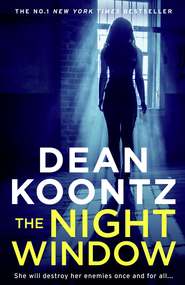По всем вопросам обращайтесь на: info@litportal.ru
(©) 2003-2025.
✖
Relentless
Автор
Год написания книги
2018
Настройки чтения
Размер шрифта
Высота строк
Поля
Milo wasn’t buying it either. “Mom, he’s doing it again. Dad’s lying.”
“He’s not lying,” Penny assured him. “He’s exercising the strong and limber imagination of a fine novelist.”
“Yeah? What’s the difference from lying?”
As if curious about her mistress’s reply, Lassie leaned forward in her chair and cocked her head toward Penny.
“Lies hurt people,” Penny explained. “Imagination makes life more fun.”
“Like right now,” I said, “I’m imagining Shearman Waxx being attacked and killed by a flying furnal with rabies.”
“Let it go,” Penny advised.
“I told Olivia I’d call her back after I read the review.”
“Don’t read it,” Penny warned.
“I promised Olivia I’d call her.”
Mouth full of pancake, Penny shook her head ruefully.
“I’m a big boy,” I said. “This kind of thing doesn’t get to me. I have to read it. But don’t worry—I’ll laugh it off.”
I returned to my study and switched on the computer.
Rather than scroll through Olivia’s e-mail on the screen, I printed out her opening comment and the three reviews.
First, I read the one from USA Today, and then the one from the Washington Post. They were raves, and they fortified me.
With professional detachment, I read Shearman Waxx’s review.
The syphilitic swine.
Chapter 2 (#u8f41cd4c-8616-550f-a7aa-e87d353a74be)
In New York, my editor, Olivia Cosima, had delayed going to lunch until I called her.
Slumped in my office chair, bare feet propped on my desk, I said, “Olivia, this Waxx guy doesn’t understand my book is in part a comic novel.”
“No, dear, he doesn’t. And you should be grateful for that, because if he realized it was funny, he would have said that it failed as a comic novel.”
“He thinks a solid metaphor is ‘ponderous prose.’”
“He’s a product of the modern university, Cubby. Figures of speech are considered oppressive.”
“Oppressive? Who do they oppress?”
“Those who don’t understand them.”
“What—I’m supposed to write to please the ignorant?”
“He wouldn’t put it that way, dear.”
Staring at my bare feet, I decided that my toes were ugly. Whatever inspired Penny to marry me, it hadn’t been my feet.
“But, Olivia, this review is full of errors—character details, plot points. I counted eleven. He calls my female lead Joyce when her name is Judith.”
“That was one we all missed, dear.”
“Missed?”
“The publicity letter that accompanied each reviewer’s advance-reading copy mistakenly referred to her as Joyce.”
“I proofread that letter. I approved it.”
“Yes, dear. So did I. Probably six of us proofed and okayed it, and we all missed the Joyce thing. It happens.”
I felt stupid. Humiliated. Unprofessional.
Then my mind cleared: “Wait, wait. He’s reviewing the book, not the publicity letter that went with it. In the book, it’s Judith.”
“Do you know the British writer J. G. Ballard?”
“Yes, of course. He’s wonderful.”
“He reviewed books for—I think it was The Times of London. Years after he stopped reviewing, he said he’d had a policy of giving only good reviews to books he didn’t have time to read. Would that everyone were so fair.”
After a silence for reflection on her words, I said, “Are you saying Shearman Waxx might not have read One O’Clock Jump?”
“Sometimes you’re so naïve, I want to pinch your cute pink cheeks,” Olivia said. “Dear, I’m sure he skimmed parts of it, and perhaps an assistant read the whole thing.”
“But that’s…that’s…dishonest.”
“You’ve had an easy ascent, Cubby, your first book a major bestseller. You don’t realize that the literary community has a few charming little islands, but they’re floating in a huge cesspool.”
My insteps were as ugly as my toes. Swinging my feet off the desk, hiding them under my chair, I said, “His syntax isn’t good.”
Olivia said, “Yes, I often take a red pencil to his reviews.”
“Have you ever sent one to him—corrected?”
“I am not insane, dear.”
“I meant anonymously.”
“I like my face as it’s currently arranged.”
“How can he be considered the premier critic in the country?”











